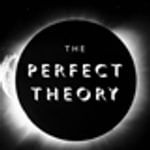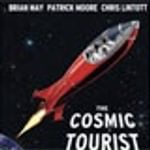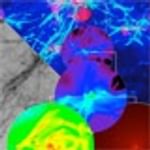The Oxford Martin Programme on
Computational Cosmology

The Programme on Computational Cosmology was established with funding from the Oxford Martin School in 2010 and the grant from the School ended in 2015. Although the programme no longer receives funding from the Oxford Martin School, Zooniverse continues to operate and is now the world’s largest and most popular platform for people-powered research.

We address how data from enormous experiments can be processed, and look at ways of extending to other disciplines methods that are developing in astrophysics and cosmology.
For most of scientific history, how fast we added to our knowledge of the universe was limited by the amount of data available. 21st century science is fundamentally different. Advances in technology provide an unprecedented wealth of information to researchers in diverse fields across the sciences.
We are a team of astrophysicists who recognise the tools and technologies we are developing to map the skies can be used in many other fields of analysis.
Our focus is on enhancing collaboration across disciplines and sharing methodologies that will accelerate progress in fields as diverse as oceanography, climate science and medicine.
Processing Data: we are working on methods required for processing and using data from multi-detector experiments that collect data on long time scales.
Applying tools from modelling the universe: we are developing and using codes that make it possible to model the evolution of a significant piece of the early Universe and still zoom in on the formation of an individual galaxy like the Milky Way. Our experience has allowed us to undertake the largest, detailed, gravitational/hydro-dynamical simulation of the visible Universe.
Citizen Science: our Zooniverse project has pioneered a novel approach to ensure that in processing data, the ability to make serendipitous discoveies and unexpected connections is not lost. It began with Galazy Zoo, where 250,000 volunteers were recruited to analyse data from the Sloan Digial Sky Survey, of one million galaxies, producing classifications more accurate than current state-of-the-art computer models. The volunteers made change chance discoveries of new types of objects like the super-star-forming Pea Galaxies and the unusual Hanny’s Voorwerp.
video
IdeasLab 2014 - Chris Lintott - Syncing Man and Machine
"Where next for citizen science? Innovative uses for crowd sourcing" with Prof Chris Lintott
What is the role of 'big data' in our future?
How can we deal with the challenge of 'data overload'?
Why do we need 'citizen science'?
Hyperconnectivity, creativity and collapse
Chris Lintott on 'Citizen science'
Working with the crowd : 21st Century citizen science
How cosmology can help us convert data into knowledge
pulications

The Perfect Theory

This is what the universe used to look like

The Cosmic Tourist: The 100 Most Awe-inspiring Destinations in the Universe

Sociology of science: Keep standards high

Einstein’s Theory of Gravity and the Problem of Missing Mass

Archipelagian Universe; Dynamics and Observables in a Universe with Discretized Matter Content

Living in a void: testing the Copernican Principle with distant Supernovae

Dark matter, modified gravity and the mass of the neutrino

Constraining primordial magnetic fields with CMB polarization experiments
Keep in touch
If you found this page useful, sign up to our monthly digest of the latest news and events
Subscribe